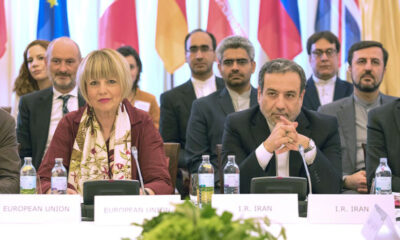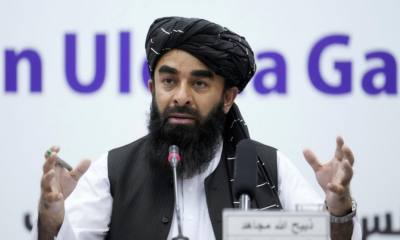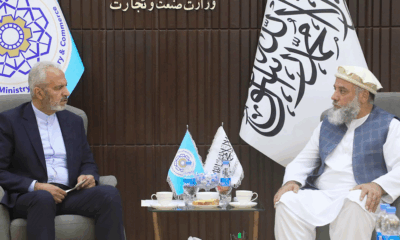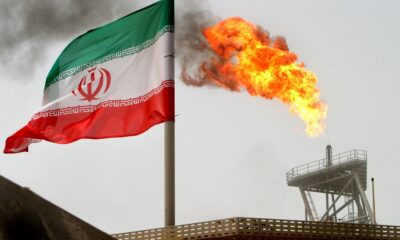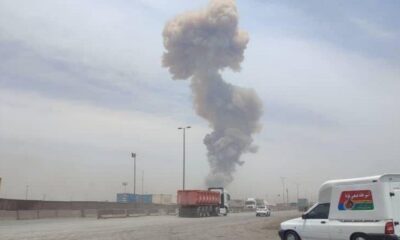Health
Three possible coronavirus cases recorded in Herat: MOPH

 Three possible cases of coronavirus were recorded, Sunday, in Herat province, sharing a border with Iran, following an outbreak of the virus in the neighboring country with confirmed cases and fatalities.
Three possible cases of coronavirus were recorded, Sunday, in Herat province, sharing a border with Iran, following an outbreak of the virus in the neighboring country with confirmed cases and fatalities.
The Afghanistan Ministry of Public Health said that three possibly infected individuals have recently returned from Qom city, where Iran’s first fatality of the virus was reported.
The provincial public health officials said that the subjects were being kept in quarantine at the Infectious Diseases Hospital of Herat, adding that collected blood samples have been sent to Kabul for diagnosis.
Mirwais Salehi, the Director of Infectious Diseases Directorate of Public Health said, “No need to be afraid, but everyone has to consider personal hygiene and boost their immune system against the coronavirus.”
Meanwhile, the provincial governor Abdul Qayum Rahimi stressed that measures have been taken to prevent the outbreak of the virus, calling on citizens to follow the doctor’s directions.
Moreover, the Office of National Security Council has imposed a temporary travel ban from and to Iran. Also, it has banned the import of chicken and eggs from Pakistan and Iran, aimed to tackle the spread of the virus from outside.
As fears spread amongst the people, the price of a bundle of the mask has risen from AFN40 to AFN800 in Herat province.
Health
Head of MSF in Afghanistan meets with Jalali over improving healthcare services
Michael Lippi committed to making efforts aimed at improving the quality of healthcare services and fostering better coordination.
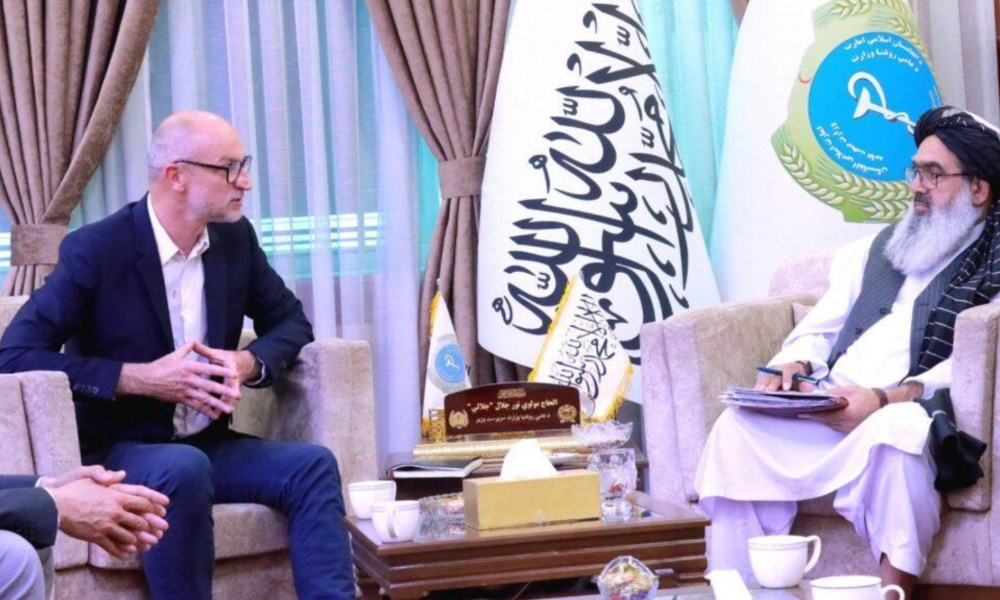
Afghanistan’s Acting Minister of Health Noorjilal Jalali met with the head of Medecins Sans Frontieres (MSF) for Afghanistan, Michael Lippi, for discussions on improving healthcare centers and medical services in the country.
The two officials also discussed enhancing the capacity of healthcare workers, ensuring transparency in services, improving coordination with the Ministry of Public Health, and delivering effective and sustainable healthcare services.
Jalali emphasized the importance of increasing and expanding the organization’s support for the health sector and called for further development of services.
He stressed the need to enhance the capacity, quality, effectiveness, and transparency of healthcare workers.
Michael Lippi also emphasized the need for further improvements in health services in Afghanistan and the expansion of this sector.
He committed to efforts aimed at improving the quality of healthcare services and fostering better coordination. He specifically addressed the continuation of services in the provinces of Herat, Kunduz, and Helmand, confirming that these centers will continue their operations in collaboration with the Ministry of Public Health.
Meanwhile, Mohammad Naeem, the Deputy Minister for Finance and Administration at the Ministry of Foreign Affairs of the Interim Government, held a separate meeting with
Michael Lippi to discuss the expansion of healthcare services and the provision of necessary facilities for returning migrants.
According to the Ministry of Foreign Affairs, Lippi reassured government that MSF’s efforts to improve maternal and child health and enhance the capacity of healthcare personnel will continue.
Health
Japanese charity Peshawar-Kai to resume leprosy treatment in Afghanistan
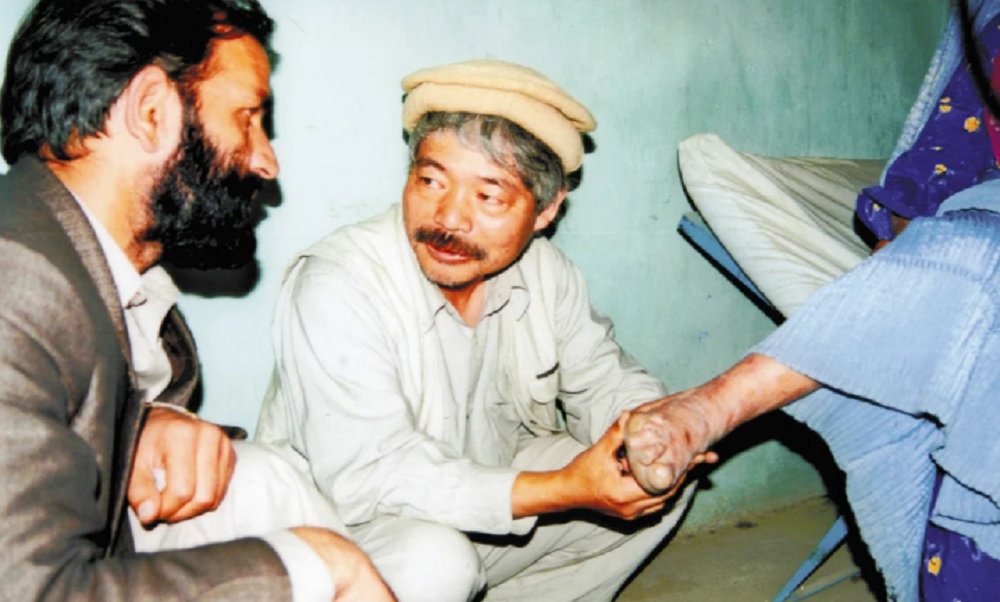
Peshawar-Kai, a Japanese aid organization, has announced that it will resume leprosy treatment in Afghanistan after around 15 years.
The charity will treat leprosy patients in memory of its former head Tetsu Nakamura, Japan’s Yomiuri Shimbun newspaper reported.
The NGO will begin its leprosy treatment program in Afghanistan this year.
It will treat patients in areas such as Nangarhar province by providing medicines, training staff and sending mobile treatment teams.
Leprosy, also known as Hansen disease, is a chronic infectious disease caused mainly by a type of bacteria called Mycobacterium leprae. The disease affects the skin, the peripheral nerves, the mucosa of the upper respiratory tract and the eyes.
Nakamura started treated leprosy patients in Pakistan in the 1980s and then began extensive activities, including the construction of water supply canals in Afghanistan.
The Japanese aid worker was killed in an armed attack in Jalalabad in December 2019.
Health
WHO confirms second Polio case in Afghanistan
The Islamic Emirate of Afghanistan’s Public Health Ministry has not yet commented.
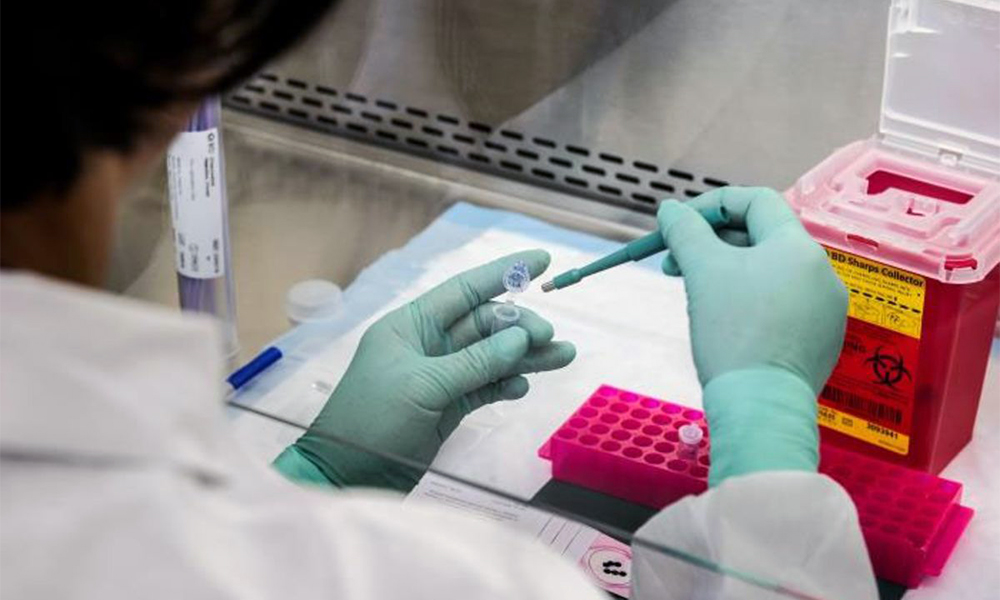
The World Health Organization (WHO) has confirmed the second case of polio in Afghanistan for the year 2025.
The case was identified in March in Helmand province.
This follows the first reported case in the Bala Murghab district of Badghis province, where a five-year-old girl was diagnosed with the virus.
Additionally, 18 environmental samples testing positive for the polio virus have been reported in provinces including Kandahar, Helmand, Kabul, Laghman, Nangarhar, and Zabul.
Afghanistan and Pakistan remain the only countries where polio has not been eradicated.
Polio is a viral disease for which there is no cure, and vaccination is the only way to protect children from it.
The Islamic Emirate of Afghanistan’s Public Health Ministry has not yet commented.
-

 Latest News4 days ago
Latest News4 days agoPakistan says India launched attack on Afghanistan, India denies
-

 World4 days ago
World4 days agoUS offers to help India and Pakistan start talks, G7 also urges dialogue
-

 Sport4 days ago
Sport4 days agoFIFA OKs creation of Afghanistan women’s refugee team
-
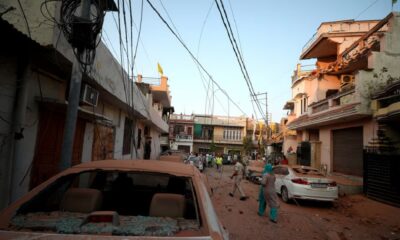
 Regional5 days ago
Regional5 days agoPakistan says it has launched military offensive against India
-

 World4 days ago
World4 days agoTrump says India, Pakistan agree to ‘full and immediate ceasefire’
-
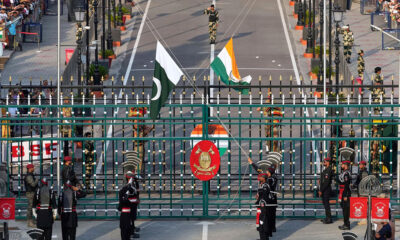
 Regional3 days ago
Regional3 days agoExplosions reported after India and Pakistan agree to ceasefire
-
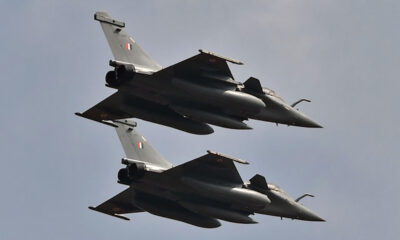
 Regional3 days ago
Regional3 days agoIndian air force says losses are part of combat but all pilots back home
-

 Tahawol4 days ago
Tahawol4 days agoTahawol: Status of Afghanistan’s infrastructure projects reviewed


